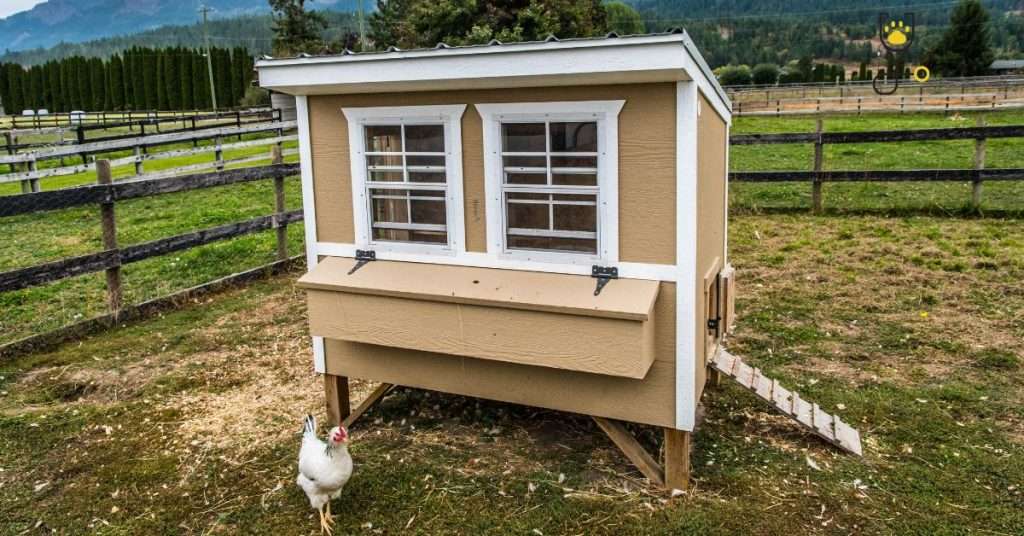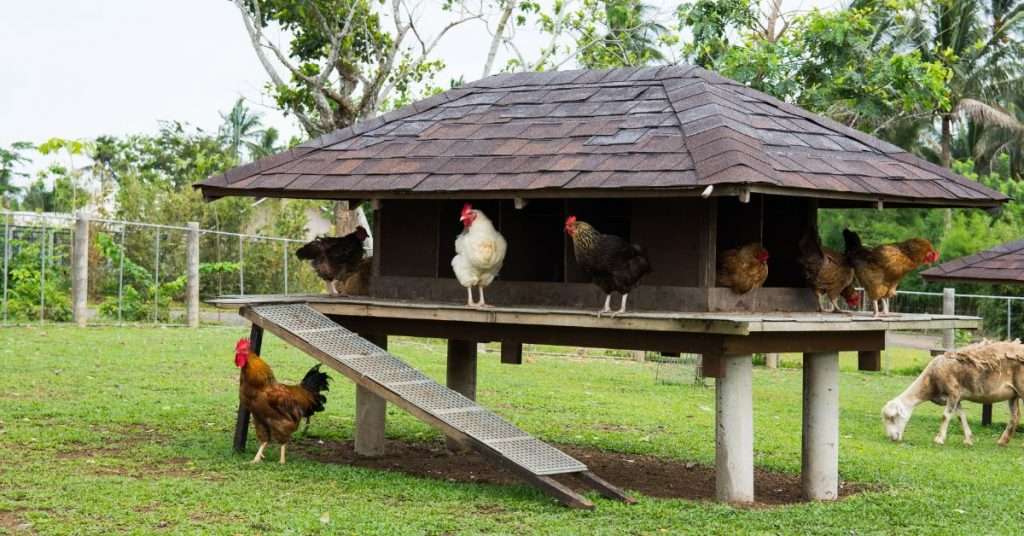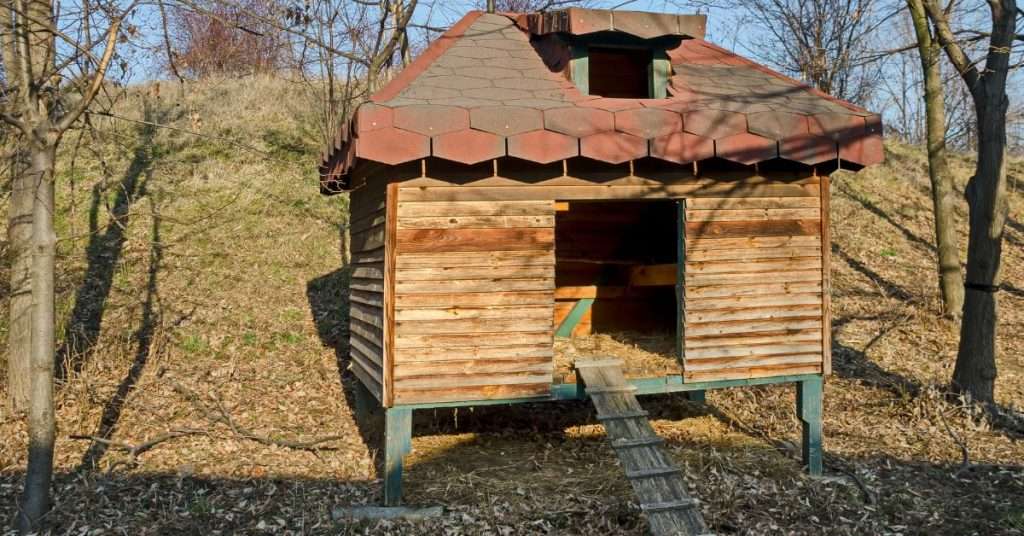Heavy rains, high winds, and even hail can do a lot of damage to your chicken coop. In this post, we’ll share some tips on how to prepare your chicken coop for bad weather so that your chickens stay safe and dry. Let’s get started!

Severe Weather and Human Safety
As the weather starts to turn, we often get asked a lot of questions from chicken owners about how to deal with severe weather events. Some are fairly innocuous, such as wondering how chickens will tolerate their first snowfall. However, others are decidedly more alarming. We always advise our subscribers to err on the side of caution when it comes to their flock’s safety, and in this article, we’ll outline a few of the most common severe weather threats chicken owners face and offer some tips on how to best protect your chickens from them.
One of the most severe weather threats chickens face is extreme heat. Chickens do not sweat like humans do, so they cannot cool themselves off as efficiently when the temperature rises. This can lead to heat stroke, which can be fatal. To prevent this, make sure your chickens have access to shade and fresh water at all times. You can also consider installing a misting system in their coop to help keep them cool.
Another severe weather threat is freezing temperatures. Chickens are extremely sensitive to cold and can quickly succumb to hypothermia if they are not properly protected from the elements. To keep your chickens safe in winter, make sure their coop is well-insulated and that they have access to a heat source. A small space heater placed in their coop will help keep them warm and comfortable all winter long.
While these are two of the most common severe weather threats chickens face, there are many others that chicken owners need to be aware of. Tornadoes, hurricanes, flash floods, and even wildfires can all pose a serious threat to your flock’s safety. The best way to protect your chickens from these dangers is to have a comprehensive plan in place before severe weather strikes. This plan should include an evacuation route in case you need to quickly move your flock to safety, as well as a safe haven where they can take shelter during the storm. By taking the time to prepare for severe weather events, you can help ensure that your flock remains safe and healthy all year long.
Read More: 13 Best Sheep Breeds for Meat
What to Do In Blizzards and Winter Weather
Blizzards and other winter storms can be dangerous or deadly to man and beast alike. However, chickens are well-equipped to endure the cold. Their feathers are designed to trap heat, and they have a special gland that helps them to produce oil that keeps their feathers waterproof.
In addition, chickens can also fluff up their feathers to create an additional layer of insulation. As a result, chickens are able to withstand temperatures that would be deadly for humans. If you live in an area that is prone to heavy snowfall, your main struggle will be to prevent the coop roof or run cover from collapsing under the weight of the snow.
Fortunately, there are a few steps you can take to help prevent this from happening.
For example, you can clear away any snow that has accumulated on the roof of the coop, and you can also use support beams to reinforce the structure. By taking these precautions, you can help ensure that your chickens stay warm and safe all winter long.

What to Do In Flooding
Flooding can pose a serious threat to your flock, as it can lead to drowning or exposure to diseases. If you live in an area that is prone to flooding, it is important to have a plan in place to protect your chickens.
- The first step is to make sure that their coop is located on high ground. This will help to ensure that the coop is not flooded if water levels rise.
- In addition, you should also consider investing in a chicken ark or boat. These structures can be used to transport your chickens to safety if your property is threatened by floodwaters.
- Finally, it is also a good idea to have a supply of food and water stored in a waterproof container.
This will help to ensure that your chickens have access to the resources they need if their coop is flooded.
Read More: The Pros and Cons of Bottle-Feeding a Baby Goat
What to Do In Wildfires
Wildfires can be a major threat to both people and animals. If you live in an area that is prone to wildfires, it is important to have a plan in place to protect your chickens.
- The first step is to make sure that their coop is located a safe distance from any areas that are at risk of being impacted by a fire.
- In addition, you should also consider investing in a chicken ark or coop that is made out of fire-resistant materials. This will help to ensure that your chickens are safe if a fire does break out.

- Finally, it is also a good idea to have a supply of food and water stored in a fire-resistant container. This will help to ensure that your chickens have access to the resources they need if their coop is destroyed by a fire.
By taking these precautions, you can help to ensure that your chickens remain safe and healthy in the event of a wildfire.
Read More: Everything You Need to Know About Pekin Ducks
Stay Safe
Severe weather can be a dangerous proposition, especially when it comes to caring for your animals. Remember, as much as we love our chickens and other animals, our own safety must come first in an emergency situation. Severe weather is not a force to take lightly, and you cannot care for your flock if you have been injured or killed by severe weather. Stay safe, and happy chickening!